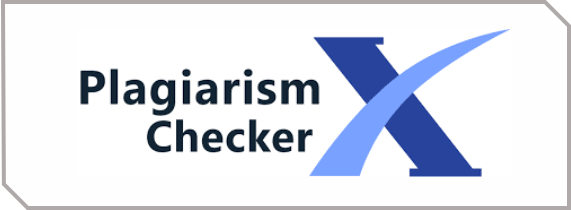Penerapan Ilmu Administrasi dalam Kegiatan di Biro Organisasi SETDA Kalteng Application of Administrative Science in Activities at the Central Kalimantan Regional Secretariat Organization Bureau
DOI:
https://doi.org/10.62951/svargapena.v2i3.163Keywords:
Community Participation, Religious Education, Religious Moderation, Social Cohesion, Social HarmonyAbstract
This study examines the application of administrative science in the activities of the Organization Bureau at the Regional Secretariat of Central Kalimantan Province. The research background is based on the importance of bureaucratic reform, demands for transparency, and the need for institutional strengthening at the regional level. The purpose of this study is to describe how administrative science is applied in the bureau’s activities and its impact on strengthening governance. The research method used was participatory action research (PAR), involving students and bureau staff through the stages of planning, action, observation, and reflection. The findings show a significant contribution in terms of improving the efficiency of document preparation, accelerating data digitalization, and fostering collaborative awareness within the bureau. Moreover, social changes emerged, such as the establishment of regular evaluation practices, openness to technology, and the rise of informal leadership among staff. These results emphasize that collaboration between universities and government bureaus can accelerate bureaucratic transformation toward more adaptive and responsive governance.
References
Badan Kepegawaian Negara. (2021). Laporan kinerja ASN Indonesia 2021. Jakarta: BKN.
Badan Pusat Statistik Provinsi Kalimantan Tengah. (2023). Statistik daerah Provinsi Kalimantan Tengah 2023. Palangka Raya: BPS.
Denhardt, J. V., & Denhardt, R. B. (2007). The new public service: Serving, not steering. New York: M.E. Sharpe.
Dwiyanto, A. (2018). Reformasi birokrasi di Indonesia. Yogyakarta: Gadjah Mada University Press.
Frederickson, H. G., Smith, K. B., Larimer, C. W., & Licari, M. J. (2016). The public administration theory primer (3rd ed.). Boulder, CO: Westview Press.
Grindle, M. S. (1997). Getting good government: Capacity building in the public sector of developing countries. Cambridge, MA: Harvard University Press.
Heifetz, R. A., Grashow, A., & Linsky, M. (2009). The practice of adaptive leadership. Boston: Harvard Business Press.
Indrajit, R. E. (2005). E-Government: Strategi pembangunan dan pengembangan sistem pelayanan publik berbasis teknologi digital. Yogyakarta: Andi.
Keban, Y. T. (2020). Enam dimensi strategis administrasi publik. Yogyakarta: Gava Media.
Kementerian Dalam Negeri. (2022). Evaluasi kelembagaan organisasi perangkat daerah. Jakarta: Kemendagri.
Kementerian PANRB. (2021). Laporan tahunan reformasi birokrasi 2021. Jakarta: Kementerian PANRB.
Kemmis, S., & McTaggart, R. (2005). Participatory action research: Communicative action and the public sphere. In N. K. Denzin & Y. S. Lincoln (Eds.), The Sage handbook of qualitative research (3rd ed., pp. 559–603). Thousand Oaks, CA: Sage.
Kolb, D. A. (1984). Experiential learning: Experience as the source of learning and development. Englewood Cliffs, NJ: Prentice Hall.
Lembaga Administrasi Negara. (2020). Laporan reformasi birokrasi daerah 2020. Jakarta: LAN.
Peraturan Presiden Republik Indonesia Nomor 81 Tahun 2010 tentang Grand Design Reformasi Birokrasi 2010–2025.
Downloads
Published
How to Cite
Issue
Section
License
Copyright (c) 2025 Svarga Pena : Jurnal Pengabdian Kepada Masyarakat

This work is licensed under a Creative Commons Attribution-ShareAlike 4.0 International License.













